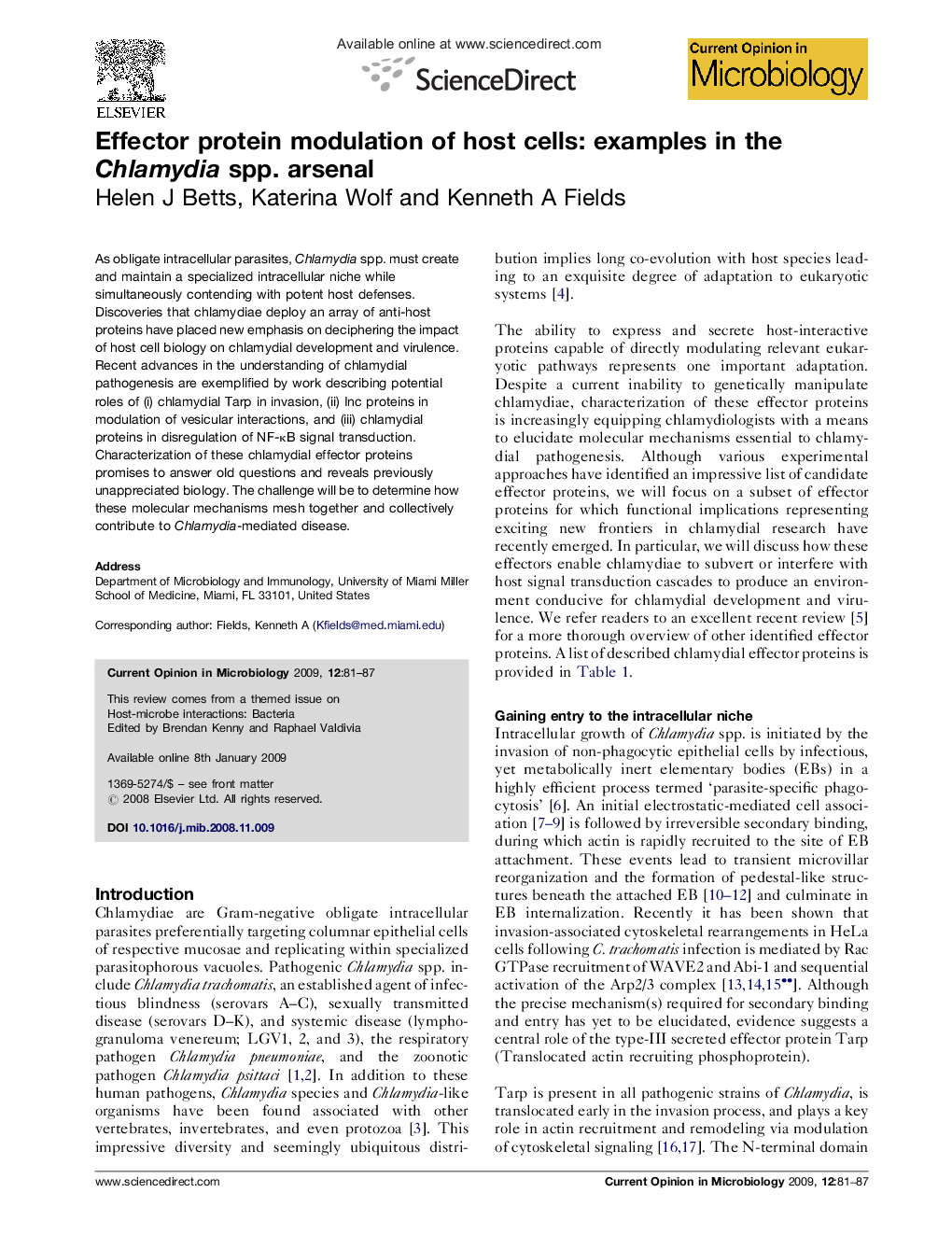| Article ID | Journal | Published Year | Pages | File Type |
|---|---|---|---|---|
| 6132280 | Current Opinion in Microbiology | 2009 | 7 Pages |
Abstract
As obligate intracellular parasites, Chlamydia spp. must create and maintain a specialized intracellular niche while simultaneously contending with potent host defenses. Discoveries that chlamydiae deploy an array of anti-host proteins have placed new emphasis on deciphering the impact of host cell biology on chlamydial development and virulence. Recent advances in the understanding of chlamydial pathogenesis are exemplified by work describing potential roles of (i) chlamydial Tarp in invasion, (ii) Inc proteins in modulation of vesicular interactions, and (iii) chlamydial proteins in disregulation of NF-κB signal transduction. Characterization of these chlamydial effector proteins promises to answer old questions and reveals previously unappreciated biology. The challenge will be to determine how these molecular mechanisms mesh together and collectively contribute to Chlamydia-mediated disease.
Related Topics
Life Sciences
Immunology and Microbiology
Microbiology
Authors
Helen J Betts, Katerina Wolf, Kenneth A Fields,
